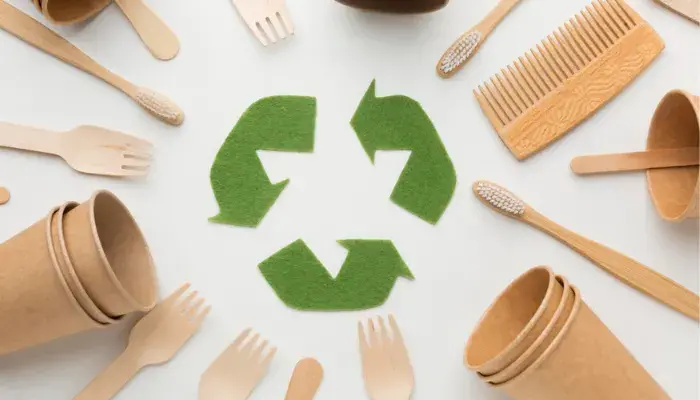Hair Care: Sustainable Alternatives to Common Products
Introduction
In recent years, sustainability has become a central theme in consumer choices, and hair care is no exception to this transformation. The cosmetics and personal care industry, especially hair products, generates a significant amount of waste and uses ingredients that can harm the environment. However, it is possible to care for your hair effectively without causing negative impacts on the planet.
The growing concern with sustainability has led many people to rethink their daily choices, including hair care products. If you are looking for more sustainable and eco-friendly alternatives to the common products you use, this article is for you! Here, we will explore options that not only take care of your beauty but also of the planet.
The Environmental Impact of Traditional Hair Products
Before discussing sustainable alternatives, it is important to understand the environmental impacts of traditional hair products. Most shampoos, conditioners, and other hair cosmetics come in plastic packaging, which is often disposable. These packages take hundreds of years to decompose, contributing to the growing plastic crisis. Additionally, many of these products contain synthetic chemicals, such as parabens, sulfates, and artificial fragrances, which can be harmful not only to human health but also to the environment, contaminating bodies of water and ecosystems.
Another point to consider is the production of cosmetic ingredients. Many of the active ingredients used in hair products come from non-renewable sources or require large amounts of natural resources, directly impacting ecosystems and biodiversity. For example, essential oils extracted from plants or ingredients like keratin may be produced in ways that are not ecologically correct.
With this in mind, the good news is that there are alternatives that help reduce the environmental impact without compromising hair health and self-care.
Why Choose Sustainable Products?
Conventional hair products often contain harmful chemicals, such as sulfates, parabens, and silicones. These components can not only damage the hair but also negatively impact the environment. Opting for sustainable alternatives means choosing products that are biodegradable, free of toxins, and use natural ingredients.
- Solid Shampoos and Conditioners
Solid shampoos are becoming increasingly popular. They are concentrated, meaning you use less product and, consequently, reduce the amount of plastic packaging discarded. Moreover, many of them are made with natural ingredients, such as essential oils and plant extracts, promoting a gentler care for your hair.
- Vegetable Oils
Vegetable oils are an excellent alternative for hair hydration. Oils like coconut, argan, and jojoba are rich in nutrients and can be used as hair masks or finishing products. Besides being natural, they do not contain harmful chemicals and are easily absorbed by the hair, promoting shine and softness.
- Homemade Hair Masks
Creating your own hair masks at home is a fun and economical way to care for your hair. Simple ingredients like avocado, banana, honey, and olive oil can be combined to create nourishing formulas. In addition to avoiding chemicals, you have full control over what you’re applying to your hair.
- Conscious Hairstyles and Practices
Reducing the use of hot tools, such as blow dryers and straighteners, is an effective way to care for your hair and also the environment. Try exploring new hairstyles that don’t require heat, such as braids or buns. Additionally, look for products that offer thermal protection naturally, avoiding harmful chemicals.
Tips for Finding Sustainable Products
- Research Brands: Look for companies that adopt sustainable practices, such as using natural ingredients and recyclable packaging.
- Read Labels: Pay attention to ingredients. Avoid products with toxic substances and prefer those with organic certifications.
- Embrace Minimalism: Less is more! Adopt a simplified hair care routine, using only what’s necessary to maintain your hair health.
Sustainable Alternatives for Shampoos and Conditioners
Solid Shampoos and Conditioners
One of the most popular and effective alternatives to replace liquid shampoos and conditioners packaged in plastic is solid products. Solid shampoos have gained popularity in recent years as a compact and efficient alternative. These products are made with natural ingredients and do not contain water, which makes them more concentrated and durable. Moreover, solid shampoo is typically packaged in recyclable paper or without packaging, significantly reducing plastic use.
These solid shampoos and conditioners can be found in various formulas adapted to different hair types, such as oily, dry, curly, straight, among others. The application is simple: just rub the bar directly on wet hair or hands and apply the product as you would with traditional liquid shampoo.
Natural and Organic Shampoos and Conditioners
For those looking for a more natural alternative, shampoos and conditioners made with organic and natural ingredients are an excellent choice. These products generally do not contain sulfates, parabens, or artificial fragrances, which can be harmful both to the hair and the environment. Moreover, many manufacturers of natural and organic cosmetics use recyclable or biodegradable packaging, making the products even more sustainable.
Ingredients such as clay, coconut oil, aloe vera, and shea butter are common in these products, offering hydration, nutrition, and deep cleaning without damaging the hair or the environment.
Sustainable Hair Treatments
Natural Oils and Plant Extracts
Instead of resorting to conventional hair treatments that often contain harsh chemicals, you can opt for natural and sustainable alternatives. Essential oils, such as argan oil, coconut oil, jojoba oil, and almond oil, are highly effective for hydrating and nourishing hair without causing harm to the environment. These oils are often produced ethically and sustainably, making them an excellent choice for those who want to adopt eco-friendly hair care practices.
Additionally, plant extracts from plants like aloe vera, chamomile, mint, and hibiscus are great for natural treatments. They offer benefits for the scalp and hair, and are entirely biodegradable.
Homemade Hair Masks
Another sustainable alternative for hair care is homemade hair masks, which can be made with natural ingredients found in your kitchen. Masks made from avocado, honey, coconut oil, egg, banana, and other natural ingredients offer hydration and nutrition to the hair without resorting to industrialized products.
By making your own masks, you eliminate the need for plastic packaging and avoid purchasing products with synthetic ingredients. Furthermore, homemade masks are usually cheaper, and you can adapt them to meet your hair’s specific needs.
Sustainable Hair Accessories and Tools
Hair care also involves the accessories and tools we use. Combs, brushes, and hair straighteners are typically made from plastic and other non-recyclable materials. Fortunately, there is an increasing variety of sustainable hair accessories that can replace conventional options.
Wooden Brushes and Combs
Brushes and combs made from wood or bamboo are an excellent alternative to plastic. These materials are biodegradable and, when sourced from sustainable brands, can be made from renewable and ethical sources. Wooden brushes also have the advantage of being gentler on the scalp and hair, helping to reduce hair breakage.
Eco-friendly Hair Tools
Some brands offer hair tools, such as hairdryers and straighteners, that feature energy-saving systems and are made with recyclable or eco-friendly materials. Moreover, the use of these tools is more efficient, reducing the environmental impact caused by electricity consumption.
Conclusion
Caring for your hair sustainably is a choice that benefits both you and the planet. By opting for natural and eco-friendly alternatives, you not only improve the health of your hair but also contribute to a greener world. Explore these options and discover how small changes can make a big difference.







